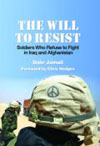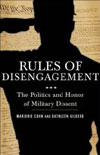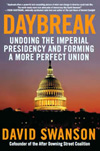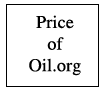Regional War Threatens
Iraq Resistance’ Control Grows
By Nick Mottern, Director, ConsumersforPeace.org
Iraq has experienced in the last week what appears to be the equivalent of a rolling Tet Offensive, the offensive by resistance forces in Viet Nam in 1968 that demonstrated that the U.S. occupation was doomed.
Two dramatic attacks reported on the same day illustrated the impossibility of the task of “securing” Baghdad. On April 11, a suicide bomber killed two Iraq parliamentarians inside the supposedly safe Green Zone, the seat of government. And, a truck bomb dropped the major, extremely busy Sarafiya bridge across the Tigris, which connected two parts of Baghdad.
But possibly more powerful evidence of the slipping away of U.S. military power in Iraq is in sustained fire fights in which insurgents show that they are well-armed and well-trained.
On April 10, the New York Times reported that resistance fighters were able to conduct a day-long battle in the Fadhil neighborhood of Baghdad. In this battle, which engaged Iraqi and U.S. military, at least four Iraqi soldiers were killed, 16 Americans were wounded, five Iraqi Humvees were destroyed, and a U.S. Apache helicopter, called in as part of air support, was shot up, according to the paper.
And the Times reported that usually battles in Baghdad last “no more than several hours.” However, it is important to understand that a several hours battle requires a significant level of training and access to arms on the part of the resistance. The article goes on to say: “ In the Dora neighborhood, prolonged fighting, which erupts almost nightly between militants and sometimes includes Iraqi and American forces, has also taken a large toll.”
The deterioration of the U.S. military situation outside Baghdad is very likely even more severe. A report in the April 8 New York Times said:
“In the northern and western provinces where they hold sway, and even in parts of Baghdad, Sunni Arab insurgents have sharpened their tactics, using more suicide car and vest bombs and carrying out successive chlorine gas attacks.”
The reality of what is happening in the provinces is receiving little reporting, apparently because of the extreme danger of travelling outside Baghdad.
Additionally, there is no reporting on what undoubtedly are war crimes engendered by massive uses of ground and air fire power against resistance fighters. For example, the Times report on the long battle in Baghdad said “neighborhood residents reported far higher casualties” than were reported in a U.S. military statement. The shift in tactics to counter-insurgency also means that there is almost certainly increasing detention, torture and assasination, if Viet Nam and other counter-insurgency campaigns are any indicator.
Further evidence of the loss of U.S. military control is the announcement that thousands of U.S. troops will be held in Iraq months longer than anticipated and that additional National Guard units are being called up. It is very likely that U.S. military forces in Iraq will number more than 200,000 in several months. This figure does not include mercenaries paid for by the U.S., which will also likely increase dramatically.
A Widening War?
The need for bringing in more U.S. troops may also be related to the prospect of U.S. attacks against Iran. Although a predicted date for such an attack of April 6 has passed, U.S. naval strike forces are still operating off Iran’s coast, and the U.S. continues to try to build a case that Iran is a major contributor to attacks against U.S. forces in Iraq.
Another concern is the possibility that Turkey may decide to enter Iraq. The Cato Dispatch of April 12 reported, quoting an AP story:
“Turkey’s military, which began staging several ‘large-scale’ attacks on separatist Kurdish rebels in the country’s southeast, asked the government…for approval to launch a cross-border incursion into northern Iraq” to fight Kurdish guerrillas, move opposed by the U.S. and Iraq.
All this may be related to the April 12 annoucement by Shell that it is getting ready to partner with the Turkish state oil company to open a natural gas pipeline and gas extraction operation in Kurdistan, as reported by thisismoney.co.uk. Shell is also interested in opening oil fields in Kirkuk, in nothern Iraq and in the Maysan field in the south.
The report concludes:
“Kurdistan remains one of the least-explored regions in the oilrich Middle East. Analysts estimate it has anything from 12 billion to 45 billion barrels of oil and up to 100 trillion cubic feet of gas.”
“The region is seen by most Western companies as one of the safest parts of Iraq and probably the best way back into the war-torn country.”
Here, with oil, the similiarity between Iraq and Viet Nam ends. While oil off Viet Nam was rumored, oil and gas in Iraq are a sure thing, creating a much more magnetic quagmire for U.S. troops than ever existed in Viet Nam.





